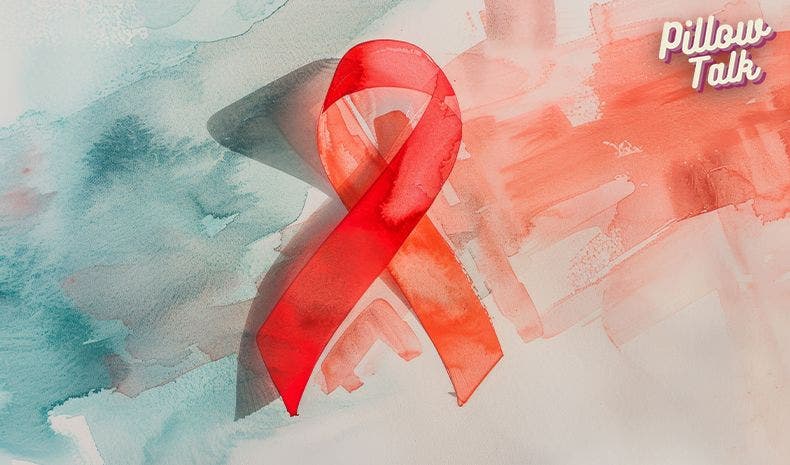Every year on December 1st, the world comes together to observe World AIDS Day, a time to raise awareness, honor those we’ve lost, and support people living with HIV. Since its inception in 1988, this day has been a vital opportunity to reflect on the progress made in combating HIV/AIDS, renew our commitment to prevention, and dismantle the stigma that still surrounds the disease.
At Lion’s Den, we’re proud to support this global effort by providing education and access to STI prevention products. By prioritizing sexual health, we can empower individuals to make informed choices and protect themselves and their partners.
The History and Significance of World AIDS Day
World AIDS Day was established by the World Health Organization (WHO) and the United Nations to shine a light on the HIV/AIDS epidemic that had devastated millions of lives worldwide. Since then, it has served as a call to action for governments, organizations, and individuals to unite in the fight against HIV.
While significant advancements have been made—such as the availability of life-saving antiretroviral therapies—HIV remains a global health crisis. According to UNAIDS, an estimated 38 million people worldwide are living with HIV, and over 1.5 million new cases are reported each year.
HIV Symptoms: What You Should Know
HIV symptoms can vary widely and are often mistaken for other illnesses, especially in the early stages. Recognizing potential symptoms and getting tested are crucial steps in protecting your health.
Early Symptoms (Acute HIV Infection)
These may appear 2-4 weeks after exposure and often mimic the flu:
- Fever
- Chills
- Fatigue
- Sore throat
- Swollen lymph nodes
- Rash
- Night sweats
- Muscle aches
Later Symptoms (Chronic HIV)
As the virus progresses, symptoms may include:
- Unexplained weight loss
- Persistent fatigue
- Recurring fever or night sweats
- Persistent diarrhea
- Oral or vaginal yeast infections
- Swollen lymph nodes that last weeks or months
Many people with HIV experience no symptoms for years, making regular testing essential. Early diagnosis can lead to timely treatment, which can suppress the virus and prevent its progression.
The Importance of Testing
Testing is a cornerstone of HIV prevention. Knowing your status is not only empowering but also crucial in stopping the spread of the virus. The Centers for Disease Control and Prevention (CDC) recommends:
- Routine testing for everyone aged 13-64 at least once
- More frequent testing for people with higher risk factors, such as multiple partners or sharing needles
There are numerous ways to get tested, from local health clinics to home testing kits. Early detection can make a significant difference, allowing individuals to access treatment and protect their partners.
Prevention Through Barrier Methods
Using barrier methods is one of the most effective ways to reduce the risk of sexually transmitted infections (STIs), including HIV. These products act as physical barriers, preventing the exchange of bodily fluids during sexual activities.
Examples of Barrier Methods:
- External Condoms: Available in latex, polyurethane, and non-latex options, these are worn over the penis to provide reliable protection.
- Internal Condoms: Inserted into the vagina or anus, internal condoms offer an alternative to external condoms and are ideal for individuals who want greater control.
- Dental Dams: Thin sheets used during oral sex to create a barrier between the mouth and genital area, reducing the risk of STI transmission.
- Gloves: Often used during manual stimulation, gloves can protect against microtears and STI transmission while adding a fun element to intimacy.
Lion’s Den is committed to making these products accessible and affordable, offering a wide variety of condoms, dental dams, and other barrier methods in-store and online.
How Lion’s Den Supports World AIDS Day
At Lion’s Den, we believe sexual health is a vital aspect of overall well-being, and we’re committed to supporting safer sex practices every day—not just on World AIDS Day.
As part of our dedication to prevention and education, we offer double INSIDE Rewards points year-round on all STI prevention products.
This ongoing commitment ensures that prioritizing your sexual health is both accessible and rewarding. Our wide range of products is designed to meet diverse needs and preferences, making it easier for you to protect yourself and your partner.
How You Can Support World AIDS Day
- Get Tested and Encourage Others: Know your HIV status and help normalize the conversation around testing.
- Use Protection: Consistently using barrier methods not only protects you but also helps prevent the spread of STIs in your community.
- Educate Yourself and Others: Learn about HIV prevention, treatment, and the realities of living with HIV. Share this knowledge to combat misinformation and stigma.
- Support Organizations: Donate to or volunteer with organizations dedicated to HIV research, education, and support, such as the Elton John AIDS Foundation or local nonprofits.
- Wear a Red Ribbon: A simple yet powerful way to show solidarity with people living with HIV.
Join Us in the Fight Against HIV
World AIDS Day is a reminder of the progress we’ve made and the work that still lies ahead. By prioritizing testing, prevention, and education, we can protect ourselves and support those affected by HIV. At Lion’s Den, we’re here to provide the tools and resources you need to make informed choices about your sexual health.
Visit lionsden.com to learn more about STI prevention products and join us in supporting World AIDS Day.
Disclaimer: The information provided in this blog is for educational purposes only and is not intended as medical advice. Lion's Den is not a medical provider. If you are experiencing any symptoms or have concerns about your health, please consult a healthcare professional.


